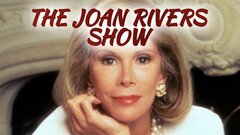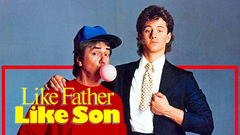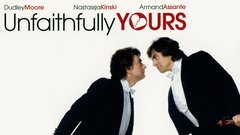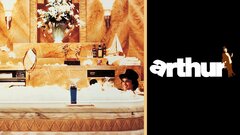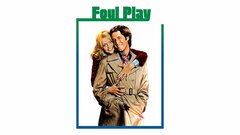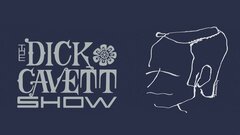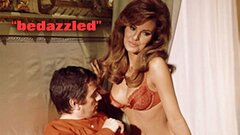A mischievous presence on British stage and television during the 1960s, Dudley Moore was one-half of an influential comedy team with Peter Cook before finding solo success in America as the giddy star of Hollywood comedies like "10" (1979) and "Arthur" (1980). With Cook, he was the eternally put-upon sidekick, the butt of his taller, more verbally vicious partner's taunts as well as his best sounding board, but after the duo split in the 1970s, Moore became an unlikely romantic hero - if one given to frequent pratfalls - in American comedies.
A classically trained pianist, his tenure as a movie star was short-lived; in the 1980s, his health was jeopardized by a degenerative brain disease. His death in 2002 robbed the comedy and film world of one of their most joyous and charismatic figures.
The son of working class parents, John Moore, a railway electrician, and Ada Francis (Huges), a secretary, Dudley Stuart John Moore was born April 19, 1935 in Dagenham, an industrial suburb in east London, England. From the start, life proved enormously challenging and tragic for the boy. Not only was he short in stature, but was born with two clubfeet, one of which never responded to corrective treatment. Ada was less than sympathetic to her son's handicap, making a point of telling him she had wished he had never been born, such was her disgust with his deformity.
Music became a refuge for Moore, who blossomed into a prodigy on piano and organ at a young age; at age 14, he was playing the pipe organ at church weddings. His musical talents won him a scholarship to Magdalen College, Oxford, where by day, he studied the organ and composition, and performed at jazz clubs and cabarets in the evening.
Moore soon developed a following in nightclub circles and began performing with such seasoned players as musician John Dankworth and singer Cleo Lane. He also explored acting and comedy through a friend and fellow Oxford student, Alan Bennett, with whom he performed in the famed Oxford Revue Comedy Group.
Bennett also gave him his first brush with fame by referring him to producer John Bassett, who was assembling a comedy revue called "Beyond the Fringe." The satirical sketch show introduced Moore and Bennett to Peter Cook and Jonathan Miller, who had made a name for themselves as comic talents at Cambridge.
"Beyond the Fringe" became a sensation in England for its surreal and often biting humor, which targeted political and military figures as absurd and often dangerous personalities. Moore soon had to abandon his music career to perform with "Fringe," which eventually made its way to New York, where he and his castmates won a special Tony Award in 1963. Its impact upon British and American comedy was far-reaching, and could be felt in such later efforts as "Monty Python's Flying Circus" (BBC, 1969-1974), "Mr. Show" (HBO, 1995-98) and "The Kids in the Hall" (CBC, 1988-1994/NBC, 1995-98).
After "Fringe's" spectacular run, Moore returned to England, where he was given his own television series, "Not Only But Also" (BBC, 1964-1970). Moore invited Cook to join him as his guest on the series, but their comedic repartee proved so popular with audiences that it soon became the focus of the show.
Their most popular sketches were a series of conversations, dubbed the "Dagenham Dialogues," with Moore and Cook playing working class men Pete and Dud, who discussed everything from high art and motion pictures to the life span of geckos without a single informed idea on the subject. Moore and Cook would frequently record an improvised version of the sketch prior to air time, and deviated wildly from the material while performing live on the air.
The highlight of most "Dagenham Dialogues" was Cook's wholehearted attempts to make Moore break into gales of infectious laughter, much to the audience's delight. Sadly, most of the episodes of "Not Only But Also" were destroyed during the BBC's frequent eliminations of what they considered outdated programs.
Moore and Cook's popularity soon translated into a film career, beginning in 1966 with "The Wrong Box," Bryan Forbes' broad all-star adaptation of a Robert Louis Stevenson novel about a group of eccentrics vying for a vast fortune. Cook and Moore played the villainous cousins of star Michael Caine, who thwarted their schemes at every turn.
The duo were front and center for their next screen effort, "Bedazzled" (1967), a biting and frequently surreal black comedy about a lovelorn short order cook (Moore) who sells his soul to the Devil (Cook) in exchange for the heart of the woman (Eleanor Bron) he loves. Moore co-wrote the film's script with Cook, as well as its pop-psychedelic score. A misfire upon its release, the Stanley Donen fantasy-comedy eventually developed a devoted cult following.
Moore took a solo turn as star, co-writer and composer of "30 is a Dangerous Age, Cynthia" (1968), a harmless romantic comedy co-starring his first wife, actress Suzy Kendall, before reuniting with Cook for "The Bed-Sitting Room" (1969), comic Spike Milligan's bizarre and hauntingly surreal comedy about survivors in a post-apocalyptic London.
The duo's movie fortunes faltered after a string of failed pictures, including the period comedy "Monte Carlo or Bust" (1969), so they took to the road with a stage show called "Behind the Fridge," which was built around their best "Not Only But Also" sketches. The production won a Tony Award, but Cook's growing dependency on alcohol put a severe strain on their working and personal relationships.
To ease tensions, Cook would frequently book a recording studio and improvise routines with Moore as Derek and Clive, who were a besotted variation on Pete and Dud. The rambling, frequently profane dialogues eventually made their way onto bootleg record releases, beginning with 1976's Derek and Clive (Live). The duo also reunited for a final comedy film, but the result was a dismal and crass comic take on "The Hound of the Baskervilles," with Cook as the master detective and Moore as Dr. Watson.
Meanwhile, across the pond, Moore had landed a supporting role in "Foul Play" (1978), a romantic comedy-mystery starring Chevy Chase and Goldie Hawn. Though his role was supporting, Moore made the most of his character, a diminutive lothario blissfully unaware of his lack of appeal. The performance earned him a Golden Globe nomination for Best Supporting Actor, and launched his career as a solo performer in the United States.
The following year, Moore's star ascended even further with "10" (1979), a smart and sexy comedy about a middle-aged composer who leaves his longtime girlfriend (Julie Andrews) for a fantasy woman (Bo Derek). Initially envisioned as a project for George Segal, Moore delivered a winning performance that perfectly balanced the romantic and dramatic aspects of his role with the more outrageous slapstick moments. A major hit with moviegoers, it established Moore as a leading man and made Bo Derek and overnight sex symbol. Around this time, he also developed a reputation as an unlikely ladies' man, enjoying lengthy relationships with such beauties as the towering actress-model Susan Anton and Tuesday Weld, whom he married in 1975 and divorced in 1980.
As Moore's star rose in Hollywood, he was mortified to discover that the Derek and Clive albums had developed a cult following among comedy listeners. Nevertheless, he relented to recording a final collection of routines with Cook, which was also filmed for a documentary. The resulting picture, "Derek and Clive Get the Horn" (1979), showed both the best and worst aspects of their relationship: Cook was still able to reduce Moore to peals of laughter, but also displayed a streak of angry jealously over his partner's solo success, and delivered a stinging personal attack that drove Moore from the studio and closed the door on their relationship for years.
Moore returned to features with "Wholly Moses!" (1980), a dismal Biblical comedy about a reluctant Old Testament prophet, but rebounded with "Arthur" (1981), a sparkling, old-fashioned romantic comedy about an alcoholic playboy who falls for a shoplifter (Liza Minnelli). A major hit in the summer of 1981, its success was due entirely to Moore's ebullient performance, which captured both the manic, childlike glee of his character and the long-simmering hurt of a man forgotten by a father who pawned him off on a frosty valet (John Gielgud). Moore received a Golden Globe for his iconic turn, as well as an Oscar nomination. Sadly, it would also serve as the beginning of the end of his film career.
Moore's next project, a melodramatic romantic comedy called "Six Weeks" (1982), was largely dismissed by critics and viewers, as were "Lovesick" (1983) and "Romantic Comedy" (1983). He rebounded briefly with "Micki + Maude" (1984), which reunited him with Blake Edwards for a giddy comedy about a reporter (Moore) who juggles relationships with his wife (Ann Reinking) and mistress (Amy Irving), both of whom are pregnant. The film earned Moore a Golden Globe award, and seemed to signal a comeback, but a 1984 remake of Preston Sturges' "Unfaithfully Yours" (1948) and "Best Defense" (1984), a military comedy with Eddie Murphy, were both failures. During this period, Moore was offered "Splash" (1984), but unwittingly launched Tom Hanks' movie career by turning it down.
By 1985, Moore's star was on the wane. The expensive, effects-laded fantasy "Santa Claus: The Movie" (1985) received a blockbuster publicity build-up, but failed at American box offices. Follow-ups, including "Like Father Like Son" (1987) and even "Arthur II: On the Rocks" (1988) met similar fates, but a even more troubling problem was developing for Moore.
He found himself struggling to remember lines and even keep his balance on movie sets and in public, which the press interpreted as a drinking problem, a la Arthur. Frustrated, he poured his energies into playing the piano and composing, and developed a pair of television miniseries, 1991's "Orchestra!" and 1993's "Concerto for Showtime that introduced viewers to the sections of a classical orchestra and the concerto, respectively. But his physical ailments continued to haunt him, and eventually hampered his ability to perform live.
He returned briefly to feature films, but the results, including 1990's "Crazy People," failed to revive his career. Moore then tried his hand at television with a pair of sitcoms, but neither "Dudley" (CBS, 1993) or "Daddy's Girls" (CBS, 1994) lasted a single season. He would make one final one-camera appearance, in the 1995 comedy-documentary "The Disappearance of Kevin Johnson," before the ailments that had been plaguing him took over his life.
Moore was devastated by the news of his old partner Peter Cook's death in 1995, and fellow mourners at his funeral noted that Moore himself seemed gravely ill. Most attributed it to drinking or the personal problems that had overwhelmed his life; his fourth marriage to Nicole Rothschild had been marred by a 1994 arrest for alleged domestic abuse.
He struggled to get through a 1996 music tour of Australia, and made headlines for losing the lead role in "The Mirror Has Two Faces" (1996) because of his inability to remember his lines. The following year, Moore underwent quadruple bypass surgery, which preceded four minor strokes. He recorded his final performance as the legendary King Kong and his discoverer, Carl Denham, in the animated feature "The Mighty Kong" (1998) before announcing that he was suffering from progressive supranuclear palsy, a rare and terminal degenerative brain disease that had produced the symptoms that had plagued him for years.
Moore's condition quickly deteriorated, leaving him mute and wheelchair bound. Onlookers were shocked by his appearance at a 2001 ceremony at Buckingham Palace, where he was made a Commander of the Order of the British Empire. The following year, Moore succumbed to pneumonia on March 27, 2002.
His work with Cook received numerous tributes in the years that followed, most notably the 2004 television drama "Not Only But Always" (Channel 4) and the stage play "Pete and Dud: Come Again" (2005). When "Arthur" (2011) was remade with British comic Russell Brand in the quintessential Moore role, it sparked interest in the 1981 film, as well as defense of the late actor as the only actor to truly deliver the goods in that particular role.



















